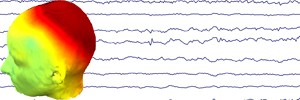General Lab Policies
ELP Lab Policies
- All researchers must complete the CITI training modules required by the UIUC IRB, and documentation that CITI certification is current must be on file with the lab director. Information about UIUC CITI training requirements can be found at: http://irb.illinois.edu/?q=education/InstructionsForIRBTrainingModules.html
- No researcher (faculty, postdoc, grad, undergrad, or otherwise) may have contact with participants until he/she has completed the required CITI training and is listed as a researcher on an IRB approval associated with the lab.
- Those wishing to conduct their own research studies in the lab:
- Must be a regular lab member. This means you need to attend and participate in lab meetings regularly, and be actively engaged in the ELP Lab research community.
- Should take part in at least one research seminar focusing on ERP methods (either through Linguistics, Psychology, or another relevant field).
- Must have at least one semester (and preferably more) experience volunteering in the lab (for credit or otherwise) before conducting their own research.
- Demonstrate proficiency in operating lab equipment to the lab director or another qualified senior researcher designated by the lab director.
- Present their research proposal during a lab meeting, and have their research design approved by the lab director.
- Be a ‘guinea pig’ in another experiment or experiment pilot session, in order to experience being run in an ERP experiment.
- Priorities for scheduling (done in the Google calendar) in the lab will be as follows:
- Federally-funded faculty research
- Federally-funded student research
- UIUC-internally-funded faculty research
- UIUC-internally-funded student research
- Unfunded faculty research
- Unfunded student research
- Pilot experiments and stimulus testing
- ERP research takes priority over behavioral research (which can be conducted in the SLAB Lab as well).
- Final say in lab scheduling will be at the discretion of the lab director.
- Calendar entries should include the name of the experiment, the researchers running the session, the responsible researcher for the project, and any other useful information that is available (e.g., subject ID number, stimulus list, etc. Do not put identifiable subject information (e.g., names or phone numbers) in the calendar).
- Leave the lab after a research session in the state you’d like to find it. This means:
- All paperwork is filed appropriately, and the lab is clean.
- The chamber is tidy and there is no garbage anywhere or gel residue on surfaces (wipe stuff down with a wet towel if you need to).
- Your data (EEG and otherwise) is backed-up on an appropriate drive.
- If we are running low on any supplies (gel, needles, syringes, q-tips, alcohol wipes, Ivory soap, tissues, gauze, tape, collar stickers), you have made a note on the board and notified the lab manager and the lab director.
- All caps and external electrodes are hung up appropriately.
- Any cap problems (e.g., faulty electrodes) are appropriately noted on the board and reported to the lab manager and lab director.
- You’ve triple-checked all electrodes (external or cap) for gel residue. There should be none. Gel residue damages the electrodes, and makes it very difficult to get impedances down.
- All appropriate materials have been disinfected in accordance with standard lab procedures.
- The amplifier battery is plugged in and charging.
- If you are conducting research in the lab, you are expected to occasionally take the towels home to wash (proportionally to the number of subjects you are running).
- The general workstation computers are available on a first-come, first-serve basis. Research takes priority on these machines. If you’re doing something other that research and someone else needs to use the software, you need to find another place to Facebook. Stimulus timing/trigger testing must be done on the EEG Stim computer. In these cases, the researcher should schedule the ERP lab like any other researcher collecting data, but be sparing in the use of time to program the experiment. If need be, stimulus creation and experiment programming can be done on another computer (e.g., your laptop, or another university computer, using Excel or any other text editor), and then programmed for ERP presentation on the lab computers.
- Software license dongles should never leave the lab under any circumstances. When you are done using the dongles for experiment programming, they need to be returned to the appropriate location.
- Don’t abuse printer privileges.
